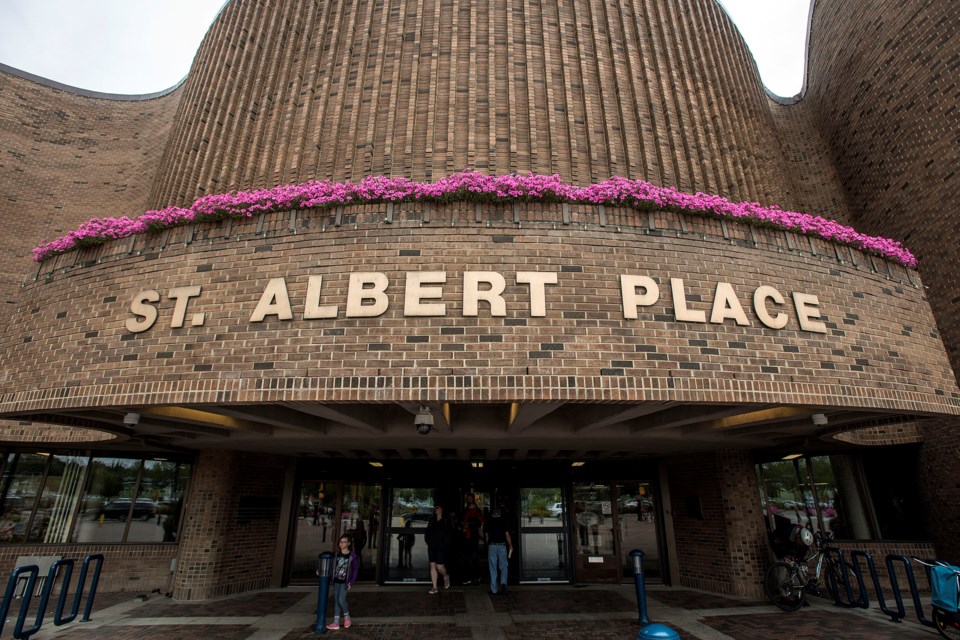St. Albert city council voted unanimously to pull out of a stagnated waste-to-energy pilot on Monday.
The $4-million project, initially approved by council in 2019, would have evaluated waste to energy for St. Albert’s brown-bin waste by exploring the design and construction of a temporary gasification facility. Council’s approval — and agreement to spend up to $1 million on the project — was conditional; in order to proceed, the city had to secure 75 per cent of the project’s funding from third-party sources.
To date, the city has spent $55,831.00 of the approved $1 million on permitting, a report to council on administration's recommendation to abandon the pilot said.
Regan Lefebvre, senior manager of utilities, described issues with a lack of successful financial backing despite administration’s pursuit of numerous grant programs and regional partnerships, and problems with scale.
The projected costs for a facility able to process almost all of St. Albert's brown-bin waste (about 8,000 tonnes) would be around 3.5 times the current cost to dispose at a landfill, according to the same report to council.
“We’ve learned a lot throughout this process,” Lefebvre said, noting both the pilot and the full-scale facility would have to be larger to be cost effective.
After council's approval in 2019, St. Albert approached other municipalities in the Edmonton region to partner on the pilot project. Only Edmonton expressed support in the form of in-kind contributions: $150,000 of land space, office space, and utilities at the Edmonton Waste Management Centre.
During budget deliberations late last year, city council debated a motion from Coun. Sheena Hughes to return the waste-to-energy pilot funds of $1 million to St. Albert’s capital reserve. Council ultimately quashed the motion, holding out for an upcoming discussion of regional chief administrative officers as one final check on interest.
Lefebvre’s report to council Monday said this meeting featured “renewed interest,” but noted none of that interest is anticipated to result in additional financial commitments without a substantial business case.
Should council continue to pursue the project, Lefebvre said at this point, the city would have to incur the full cost of the project itself.
Coun. Wes Brodhead posed a question about the potential environmental justifications of continuing to pursue waste to energy.
“I’m wondering how you reconcile … our environmental responsibility versus our fiscal responsibility?” Brodhead asked Lefebvre.
Lefebvre said the decision to pursue waste to energy should ultimately be made as a region, but commented on some environmental components of pursuing waste to energy.
For example, he noted burning waste to produce energy is not considered a completely green way to produce electricity or energy due to the greenhouse gases the process emits.
“The environmental benefits are obviously the extension of the life of landfills, as well as the reduction in the methane emissions from the landfills themselves,” Lefebvre said. “It’s sort of a shades-of-green project.”
He noted recycling is more environmentally beneficial, second to refraining from using single-use plastic entirely. Lefebvre said the downside of waste-to-energy programs can often be that they have a negative impact on existing recycling programs, due to removing the incentive to recycle.
If council did decide to continue to pursue waste to energy, Lefebvre said one additional alternative could be to consider a competitive procurement for the use of an active demonstration facility, rather than a pilot.
“We did receive an unsolicited offer letter to use a demonstration facility, and that was done in confidence,” Lefebvre said, noting he didn't want to share too many details. He did say the offer shows there are facilities that would be interested, but that a cost range around $1 million would get St. Albert around a month of data, rather than a full year.
Mayor Cathy Heron noted rescinding the pilot motion “doesn’t shut the door” for speaking with potential vendors in the future.
'New system will not be free'
Commenting on the motion, Coun. Natalie Joly echoed other councillors, who said, “You miss 100 per cent of the shots that you don’t take.”
“I’m thankful for a council and administration that’s looking forward innovatively and sustainably,” Joly said. “I’m also thankful for questions about how we place a price tag on pollution … our current system is failing, and a new system will not be free. I really look forward to ensuring that our priorities going into the future champion environmental responsibilities.”
Coun. Sheena Hughes said the information gathered by administration shows the importance of doing things in the proper order, noting that pursuing waste to energy was formerly an integral part of a municipal utility corporation the city was exploring (the city is currently exploring a municipal energy corporation that focuses mainly on a solar farm).
“This is about putting things in the proper order before we commit to large investments,” Hughes said. “It’s quite clear that upon review … it would have lost us money, or it would have jacked up the utility rates substantially to try to cover those costs.”
The motion to withdraw from the pilot program passed unanimously.




